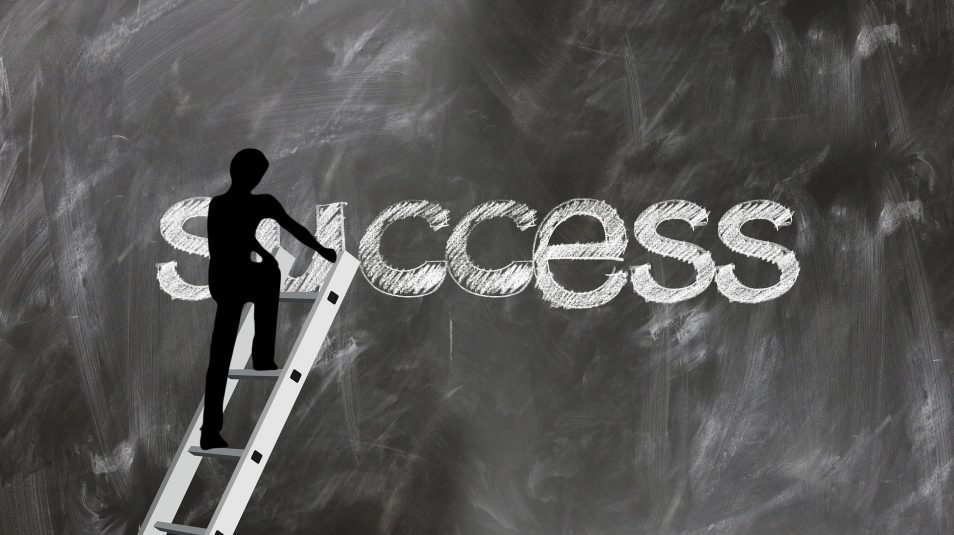Where Did the Nice Leaders Go?

Personal Development
March 22, 2016
Alan Derek Utley
Regional Human Resources Director / Management Faculty
Topics
Character-based Leadership, civility, Leadership Development, Self DevelopmentPolitical season is upon us. As I watch debate after debate, I find myself asking one simple question:
What happened to civility in leadership?
Many years ago, a colleague and I were asked to create a training program to help employees – i.e. future leaders – act “more professional.” As we attempted to meet this daunting request, we made an interesting discovery.
While there are many facets that define what it means to be a “professional,” one stands above the rest as critically important: being nice to others. We labeled that idea civility.
The American Heritage Dictionary defines civility as:
Courteous behavior. Politeness. A courteous act or utterance.
As one component in our program on Professionalism, we encouraged participants to explore what civility meant to them, to the people around them, and to their organization. Here’s a sample from one workshop where participants described both civil and uncivil behaviors, in their own words.
| Civil behaviors | Uncivil behaviors |
|
|
Before you write this off as oversimplified material we learned in preschool, I must report that, almost daily, I am saddened to learn of discourteous acts performed by leaders.
A snide remark here. An unkind look there. Sarcastic comments. Underhanded deeds. Unfriendly conduct. Hurtful quips. Making others look bad in order to get an upper hand. Winning at all costs. And the list goes on.
Much too often now, we see it in the news.
If civility is so simple, why is it so hard to do?
Why Being Nice is Hard
In an effort to explain, I offer the following:
This story comes from an interview on the PBS show: NewsHour with Jim Lehrer. On that program, David Gergen interviewed Stephen Carter, Professor of Law at Yale University and author of the book Civility: Manners, Morals, and the Etiquette of Democracy.
In the interview, Carter talks about the state of civility in America today:
While we tend to think of civility as being about manners, as being about behavior, and it is partly that, I’d like to think of it as something larger, that civility is the sum of all the sacrifices that we make for the sake of living together. And one of the things I think we’re losing in America today is the sense of...going the extra mile, doing something we don’t have to do, that the law doesn’t require of us, in order to help someone else’s life be a little bit better. The sacrifice will make for a common enterprise.
There it is – what makes civility hard: sacrifice. To be civil means to give of ourselves. To surrender, to lose. To be selfless, a servant.
And in today’s world of me, me, me and take, take, take, have we forgotten to give? Is there too much at risk? If so, then what do we stand to lose in our efforts to achieve civility?
Consider the following:
- Being right
- Getting the upper-hand
- Winning
- Looking good
- Forwarding our own agenda
- Getting something “important” off our own to-do list
- Receiving the attention of others
- Personal comfort
These are all things that we oh-so desperately desire in the moment, right? But is there anything on this list of fragile short-term gains that we couldn’t also achieve in the long-run, and in a more lasting manner?
The enduring benefits of being nice are countless, and include:
- Positive relationships
- Trust
- Support
- Goodwill
- Reciprocity
- Deposits in the emotional bank account of others
- Improved emotional intelligence, which comes from practice
- Innovation
- Happy, productive work environments
- Attracting and retaining talented people
- Other future benefits, yet unknown
Being Nice is Worth It
The long-term benefits outweigh the short-term costs. Further, we know that people want leaders who care, who support them, teach them, and help them grow. It is hard to do those things when we lead with fear and hate - products of incivility - which never amounts to anything positive. Lately we've seen the byproducts of incivility including anxiety, unrest, and violence…so why ever make that choice?
To quote the great Maya Angelou:
I’ve learned that people will forget what you said, people will forget what you did, but people will never forget how you made them feel.
Putting Nice Back in Leadership
How do we put civility back in leadership? Simple. Start by expecting nothing less. Ask yourself, do I expect civility? Do I model it? Does my organization value and nurture it? If not, find the gaps and make the necessary changes.
From there, being civil requires patience, understanding, emotional intelligence and the willingness to make small sacrifices for the sake of others.
Let’s bring civility back to leadership. Please and thank you.
In closing, I want to give thanks to my former colleague, Kathy Collins. Kathy and I partnered on the course referenced above many years ago and the ideas I shared in this post were inspired by that work we did together. I felt it was important to acknowledge her here. Because, to do otherwise, would be, well…uncivil.






Hi Alan, this is succinct and wise advice. As someone who’s worked in the hospitality trade, one of the things I’ve always done is allow the staff I supervise to go for breaks first. It’s these little acts which get the respect of staff.
You’re right, it’s all about civility.
Mel, that’s perfect. The littlest things can certainly make the biggest impacts.
Thank you for the tip!
Alan
My first thought is how is it that our politicians are called civil servants, but there is rarely an act of civility coming from them.
What you’ve identified here are important, not just in leadership, but in the whole of society. We have lost the nice factor in many segments of life in general. Individually we choose our friends and will spend time with because they are nice. The more I witness in organizations and associations the less I’m willing to put myself out there for them, because I’m still nice and I want to stay nice.
I don’t think it’s good or best, but i think it’s how we gradually create the wider and wider gaps.
Jane, so true. I really prefer being around nice people, too, in all aspects of my life. They just make me feel better. And this is important for everyone.
Stay nice, Jane.
Alan
Alan, thank you SO much for writing this post. I think I am going to schedule sharing it about every 3 months on my social channels because of the need alone.
“Civility is the sum of all the sacrifices that we make for the sake of living together” – how beautifully put from Stephen Carter.
A few more incivilities I’ve noticed:
– at work, leaders assuming people know who they are, so they don’t introduce themselves when they speak to groups
– in life, other drivers not making a place for those merging or
– people letting a door drop shut, not noticing or caring someone is behind them
In our house we call this “entitlement” and try our hardest to recognize and correct our own.
Thank you again Alan for calling attention to this.
Hey, there, Mary.
I so agree with you about Mr Carter. Since I first read that quote many years ago I’ve never forgotten it and I share it often. It’s one of those little nuggets that had a big impact on me and my approach to things.
This is simply an area that I have so much passion for. There is a price for nice, but I’m more than willing to pay it. This nice guy won’t finish last. 🙂
Alan